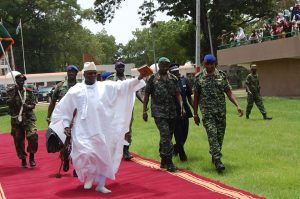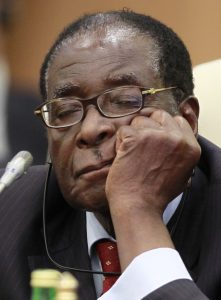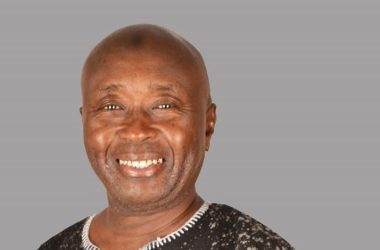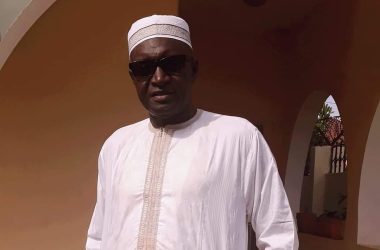
‘Kakatar Syndrome And Human Billboards’
(JollofNews) – Without prejudice—What I find fascinating about being in and then out of Africa is that the contrast gives you a filter that allows you to adjust your focal length, to get certain clarity. I thought it was exile, but now I think it’s distance—either chronological or geographical—that is required for you to really understand what you’ve been seeing, because you’re too close to a situation. I’ve studied several authoritarian regimes, and even lived under the authoritarian regime of Yahya Jammeh, and it’s fascinating how similar it is to Robert Mugabe’s rule in Zimbabwe. Mugabe and Jammeh seem to have use the same building blocks.
I started out thinking that if you want to understand dictatorships, you study dictators. The more I witnessed, the more I realized that, essentially, in any school playground a bully will emerge if he or she can emerge—it’s weirdly systemic. And having systems of checks and balances, inane as they may seem, prevents dictators from emerging.
Dictatorships survive partially because of intellectual prostitution—which prevails in Gambia and in Zimbabwe. It’s belly politics; if you don’t go along with it, you don’t eat. Dishonesty, ambiguity, bullying, threats, cronyism and sycophancy are merely theoretic strategies for those who put position and power as objectives above truth. If truth is not upheld in every instance, telling the truth as a strategic option becomes ineffective.
In the book, Africa Unchained (2005), Professor George Ayittey wrote “as a group, African scholars and intellectuals have let Africa down badly by not providing intellectual leadership to the democratic struggle.” Time and time again, for the highly “educated,” the lure of a luxury car, a diplomatic or ministerial post and a government mansion often prove irresistible.” Professor Ayittey added that “vile opportunism, unflappable sycophancy, and trenchant collaboration on the part of Africa’s intellectuals allow tyranny to become entrenched in Africa.” He also said, “All dictators legitimized and perpetuated their rule by buying off and co-opting Africa’s academics for a pittance. And when they fall out of favor, they are beaten up, tossed aside or worse. And yet more offer themselves up.” And he further noted, “As prostitutes, they partook of the plunder, misrule and repression of the African people. Some of their actions were brazen.”
When Jammeh overthrew the democratically elected government of Sir Dawda Jawara, the only minister from Jawara’s administration enticed to serve in the military with Jammeh was finance minister; a very respected individual, even in international circles. He was instrumental in getting the World Bank to resume aid to the Gambia. On 10 October 1994, he was fired by the military junta. He was no longer useful to them. Then November 15, he was accused of complicity in the November abortive coup attempt.
Next to assume the country’s finance portfolio was a brilliant economist Ousman Koro Ceesay. When he became no longer useful to the Junta,” they smashed his head with a baseball bat,” said Captain Ebou Jallow (Washington Times, 20 1995). Then other expendable intellectual prostitute with shady characters start to lobby positions and serve as ministers and diplomats. They too were later fired when they become no longer useful the junta. Chicken-hearted professional afraid of the dictator; instead, they sought international jobs within the UN system. Such has been the fate of a political and intellectual chameleons. Yahya Jammeh fired 296 ministers, fired and recycled more than 110 permanent secretaries not to mention Directors.

Professor Ayittey further added that “African intellectuals throw caution and common sense to the winds and fiercely jostle one another for the chance to hop into bed with military brutes.” The also Professor added “how could an educated man, whose basic human rights were viciously violated in detention, suddenly decide to join his oppressor”-Only in Jammeh kunda. A permanent secretary has been hired and fired nine times and finally rested at Mile 2 prisons.
Robert Mugabe is a public intellectual, a man with six or seven degrees and very widely read, and yet when you look at how he’s emerged as the leader of Zimbabwe, it’s like so many other countries where one authoritarian regime is followed by revolution and replaced by another authoritarian regime. There is a social conditioning that occurs. People are conditioned to accept authoritarian rule. They have been cowed before, and they go back to that mindset. They think it’s a fascist rule where they are powerless.
Yahya Jammed is quite the opposite, and yet he is a rather fastidious dictator. He has no academic degree and retired with the rank of colonel in the army, but he claims to be a religious leader (a sheikh), a professor and a doctor. He’s not Idi Amin or some Nigerian general with medals clanking across his chest.
Jammed, in contrast, is often seen in his long white robes, holding the holy Quran along with his sword and two prayer beads. This is quite different from Mugabe, who wears typical safari and French suits. Yet despite their differences in education and personal appearance, they both want to preserve the façade of a democracy because they believe they are liberation heroes. Jammeh believes that he sacrificed his life to liberate the Gambia from the PPP, from thirty years of bad governance, whereas Mugabe believes he liberated his country and went to prison, went to exile, before becoming their leader. And if you are a liberation hero—as we have seen in Cuba, for example—you can draw on the revolution endlessly as a font of legitimacy.
You are the revolutionary, and you can use it to stop any legitimate opposition of your rule. So, when Mugabe was recently forced to have an election, he looked at the electorate and said, “How can you possibly vote against me? If it weren’t for me, you wouldn’t have a vote.” Jammeh told his party supporters that there would be “no elections in a million years” and described politics and politicians as “donkeys and liars.” There’s a sort of messiah complex that these types of leaders have.
Mugabe and Jammeh use the dictatorial methodology of intimidation, killings and forced exiles to help them maintain their power. They needed to intimidate everybody, but they refined the process. Rather than killing hundreds of thousands of people, they found that only three to four hundred people needed to be killed in order to scare the others into the desired behavior. They put two or three hundred people in torture camps and tortured them terribly, but then released them back into their own communities with broken limbs and dismissals from public service, using the courts to accuse them of “false information” and “economic crimes, “leaving them with a political stigma.
They released them back into their own communities where they basically become human billboard—they served as advertisements for what happens to those who oppose their administration. And it was very effective. How many ministers and senior government officials in Gambia are fired and then detained at Mile 2 Prisons, and how many are languishing in prison, and how many are standing trial on bogus charges of giving false information to public officials? How many faced charges of economic crimes, and how many are now in self-imposed exile? And how many are waiting to be recycled like plastic bags?
And yet on the other hand, people in other countries who were opposition members—often at just the city level—as well as ordinary citizens, people of different socioeconomic groups, seemed almost surprised by their own potential to bring about change if they were courageous enough to try. We have seen that in Egypt and many other places, a brief window opens when people say, “You know, we could . . .” And suddenly, there’s a flowering of activity. The next crucial step, and I don’t think this got sufficiently reported in the case of Egypt, is how security forces behave. Are you able to put the stems of your flowers down their barrels? The difference between places like Egypt and Gambia and Zimbabwe is that in the latter two, you could do that if you choose, but live ammunition would be coming after you from the other direction. In Matabele land, for example, Mugabe once killed 20,000 civilians who were members of Zimbabwe’s minority Ndebele people, and Yahya Jammeh killed 14 students in April 2000 while they were conducting a peaceful demonstration. Jammed has made almost every family under his rule cry and suffer during his 22 years of dictatorship.

In 1980 Mugabe’s cabinet was full of PhD holders and Jammed too had one of the most educated civil servants when he took over. Now, many of those who currently serve have sold off their integrity, principles and conscience to serve at their rulers’ beck and call. Some even preferred military to civilian rule. In Africa, we are afflicted with “intellectual astigmatism,” in many cases hopelessly blind to the injustices committed by African leaders against our own people.
In Africa at the end of the Cold War, there was a great flowering of democracy. Sub-Saharan Africa really started to become independent, beginning with Ghana in 1957. Those first generations of independent black African countries were taught that the only way they would be judged on the international stage was on whether they were pro-communist or pro-capitalist, pro-Moscow or pro- Washington.
So, for decades, the West was quite happy to support Mbutu or Houphouet-Boigny; it was fine if they were our dictators. Then the wind of change in 1990 tore up the rule book and said that, on paper at least, you’ve got to be open and transparent. Because some of the young revolutionaries had turned into dictators or became corrupt. One of them, Laurent Gbagbo in Cote d’Ivoire, recently had to be prised from power by ex-colonial forces and another, Frederick Chiluba in Zambia, stole huge amounts of money and had to be kicked out of the country.
President Mugabe and Jammeh are political survivors and will likely remain in power for the foreseeable future. It seems they have been accepted by a population that regards them as the ultimate village chief. Jammeh has amassed a fortune that makes him one of Africa’s richest men; nobody really knows how much he is worth, but there has been some indication of his vast wealth since he married his foreign wife. Mugabe too became flamboyant after the death of his Ghanaian wife. Grace Mugabe and Zainab Jammeh shared a common desire for an extravagant lifestyle, at the expense of the plight of their people. These two countries have the poorest economies, brutal dictatorships and wives who believe in and extravagant lifestyles.
The Gambian and Zimbabwean leadership relied on highly talented and admirably hard-headed intellectuals to resort to repression as their means of political survival. They have had a great impact on their countries and even the world around them. They assumed power in different ways, with differing political views, but both styles of leadership have been detrimental to their countries. In the years since these leaders took power, they have destroyed many people’s lives and continue to negatively influence the way in which many of their people live to this day.
The author is the founder and managing editor of The Independent Newspaper in The Gambia, which was arbitrarily shut down by the Jammeh regime. He is the author of the widely read book, Democracy Delayed.
Note: This article is an abridged version of the fuller article that can be found at Maafanta.com. The longer version of this article was published in 2009 and is still well worth reading and of immediate relevance to current events unfolding in the Gambia. It is being republished in a different version from the original, given the fact that the article is still considered to be instructive, timely, informative and lucid, in the context of contemporary Gambian politics.





I think the total lack of a thriving private sector in most of Africa has meant that Government and the Army, or the public sector remains the only avenue to opportunity for most people. This has created a situation of intense competition for the top jobs/president, Army majors, since from such vantage points one could easily and more comprehensively enrich oneself and ones constituent in perpetuity without too much impediment, constraints or any “silly” accountability or governance realities as practiced in the private sector. Thus some African rulers like to be known as Mansas, Emperor, President for life etc, since traditionally, it is taboo (under the pain of death by torture)to hold a Mansa, or Emperor, or President for life, as though accountable for actions, neglect , or inaction committed. The logic of course is that since there exists no social contract between the governor or Mansa and the governed (the plebs), any talk of accountability is properly regarded as heresy to be severely punished by torture, death or long imprisonment: a necessary course of action first to concentrate the mind of the plebs that as far as Mansa is concerned, all accountability issues can exist only between him and the all Mighty Allah, and second to send a strong reminder to all lesser mortals that the All Mighty Allah had in in his wisdom long ago settled the accountability issue when all AK47s and the men who operate them were allotted to Mansa, while everyone else Pleb or otherwise, including winging UN chief or meddling ECOWAS busy bodies were all allocated to “Hell”.
Where there to be a viable private sector, this could lead to more citizens preferring a private life in family owned enterprises rather than fighting tooth and nail to get locked in Government/ Army etc. And hopefully only those with more more nobler intention would seek – but not seek to kill to remain- life in the public sector. For example because, for example people with mindsets closer to the the likes of ‘the Methodist Bishop Hannah Fall (sorry if I got the name wrong somehow)
Mr. Jallow, I agree with the article, particularly the third paragraph in which you quoted Professor Ayitty (2005), argued “all dictators legitimized and perpetuated their rule by buying off and co-opting Africa’s academic for pittance.” How sad! Do you think a Presidential terms throughout Africa would minimized this disturbing political corruption? The only Gambian intellect I knew resisted and escape being co-opt is Dr. Halifa Sallah.
At the end of the current political impasse in our beloved country, we need a robust infrastructure. Our urban streets/roads should be properly and decently build, particularly in Serrekunda and the surrounding areas. Take a walk in most of our urban streets feels like being surrounded by a muddy lake in the summer, and windy desert in the spring. This is an economic as well as public health concern.
Another thing I needed to mention is that, these intellectuals are usually hired by these dictators under the guise of in need of well educated citizens to contribute to national development, but in actual fact they hired them to secretly learn from their knowledge and dump them as soon as they feel satisfied. I call this another form of brain drain. Remember the administration of most of these dictators is usually consist of empty headed civil servants.